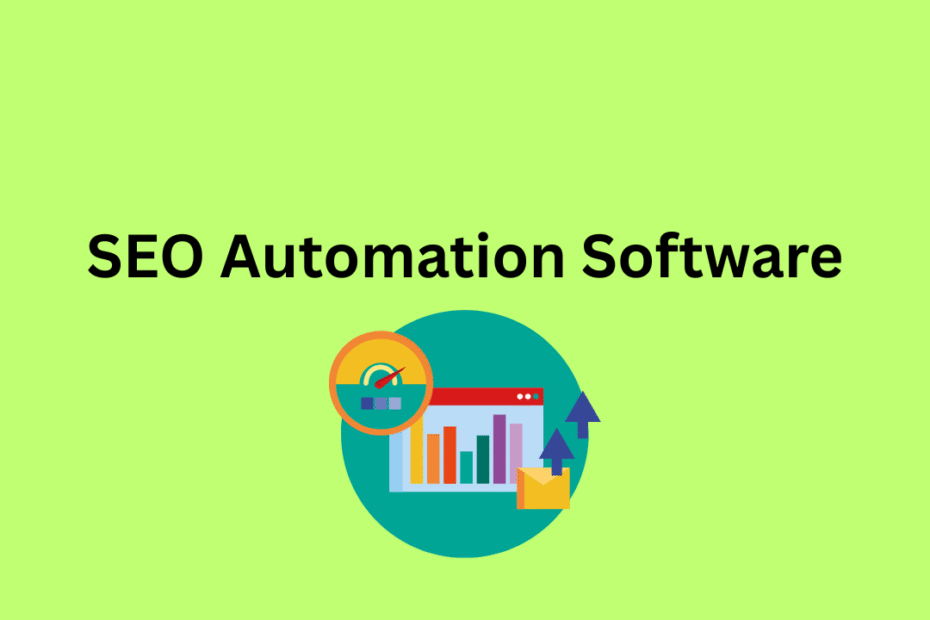SEO is performing all manner of contortion acts in order to slightly move your position on a website . Honestly, it is more time-consuming and energy-consuming than people think. This is one area where SEO automation software can help to alleviate some of the burden.
SEO automation tools take care of all of this legwork and lets you worry about things that will actually make a progress. They streamline your process and simply make things run smoother. Some examples of SEO automation software that I have tried, or spend some time researching can be found here .
1) KoalaWriter
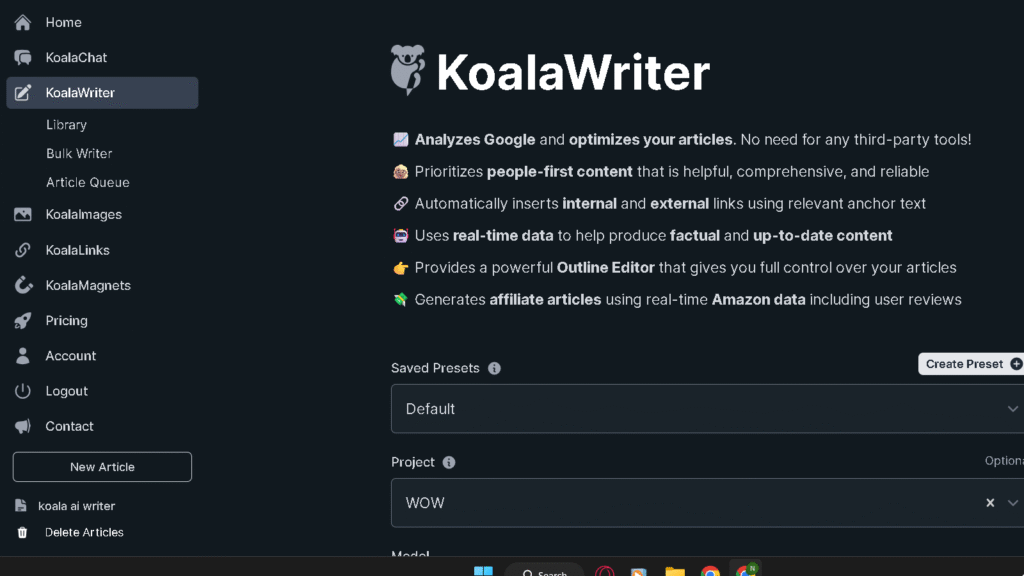
I chose KoalaWriter instead because it is primarily concerned with automating the writing of SEO content. This combines new search engine data with GPT-4 language models, so I can create SEO-geared articles very quickly and fairly accurately.
It goes and checks out the highest ranking pages for my keywords, and then goes and finds related topics, related keywords that may help my article rank even higher. This is another form of automation that is very time saving for me.
KoalaWriter is where I really love writing long form articles or blog posts. The formats are simple, and the AI formatting cleans up my drafts. It’s clearly geared toward SEO content, but I still go to other tools if I need something different.
2) OTTO SEO by Search Atlas
For automating SEO work, OTTO SEO by Search Atlas is a good choice. It uses AI to handle minor adjustments, generate content, and optimize pages— all without me having to supervise it.
Easy to setup. I simply drop a pixel or app onto my site and OTTO begins the audit. It leverages Google Search Console to identify problems such as meta tags, schema markup deficiencies, or what content needs assistance.
What I do like is that I am able to see and approve changes before they are live – so I can review and “look” like the one making the changes. And I remain, in the driver’s seat, no coding required. It is an ideal match for groups or freelancers who wish to improve rankings without the grunt work.
3) Semrush SEO Automation Tools
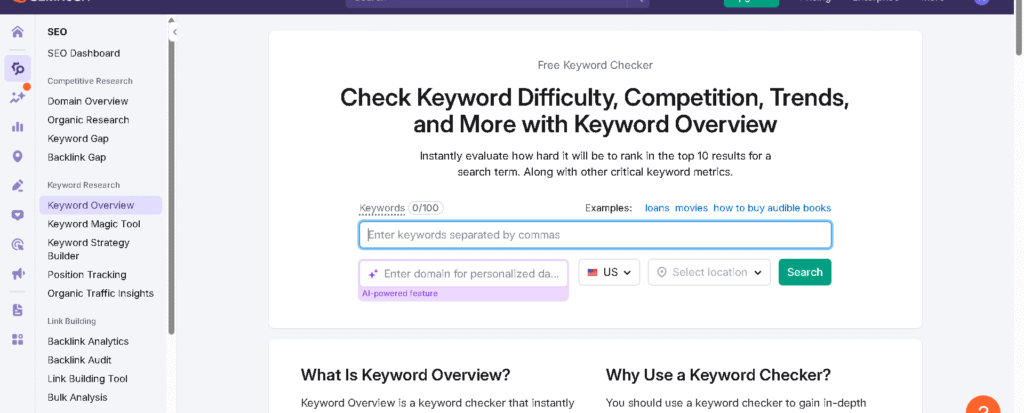
Semrush hands me an entire set of tools for automating SEO processes. I can easily monitor Google for my rankings, making it easy to identify which keywords I need to work on.
These keyword research tools even start to dig into search intent, so my content can actually relate to what people are looking for. Their competitor research and content marketing tools are also a plus for my ability to keep new ideas coming.
And Semrush basically puts everything on a dashboard in one place, so I’m not bouncing between a dozen apps. There is half the burdener right there. It’s a good all-in-one if you are serious about search.
4) Ahrefs
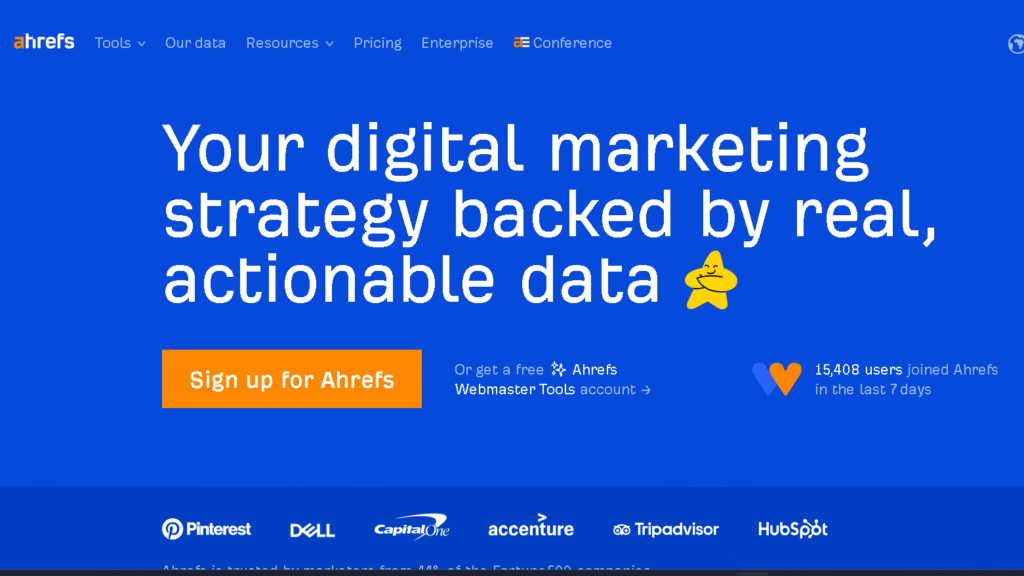
I’m going to be brutally honest- Ahrefs is probably one of the top SEO automation tools I have ever seen. It includes looking at backlinks, doing keyword research, and content optimization, and therefore I can also avoid doing much of the manual grunt work and concentrate on the strategy instead.
Having such a large database gives me very specific information on how my site is doing, and my competitors are doing. That data is pure gold when I go to start planning campaigns or just want to stay ahead.
It’s good for novices and experts. Machine specific reporting, and suggestions allows me to be able to audit and adjust as I go. Plans do differ, so I always double-check before I sign up.
5) Moz Pro
When I need a simple set of SEO tools Moz Pro is my go to. It does all the basics- keyword research, site audits, rank tracking, backlink analysis- without being too overwhelming.
The interface is clean and I like that it just does what it does well . It’s not the most advanced, or new, but from a marketer perspective, you get what you need without the headache.
Domain Authority is a useful metric to determine strength of a site. Whether I’m dealing with a small business site, or a blog, Moz Pro’s suite integrates seamlessly. Pricing begins at $49/month and seems reasonable for the service.
6) Screaming Frog SEO Spider
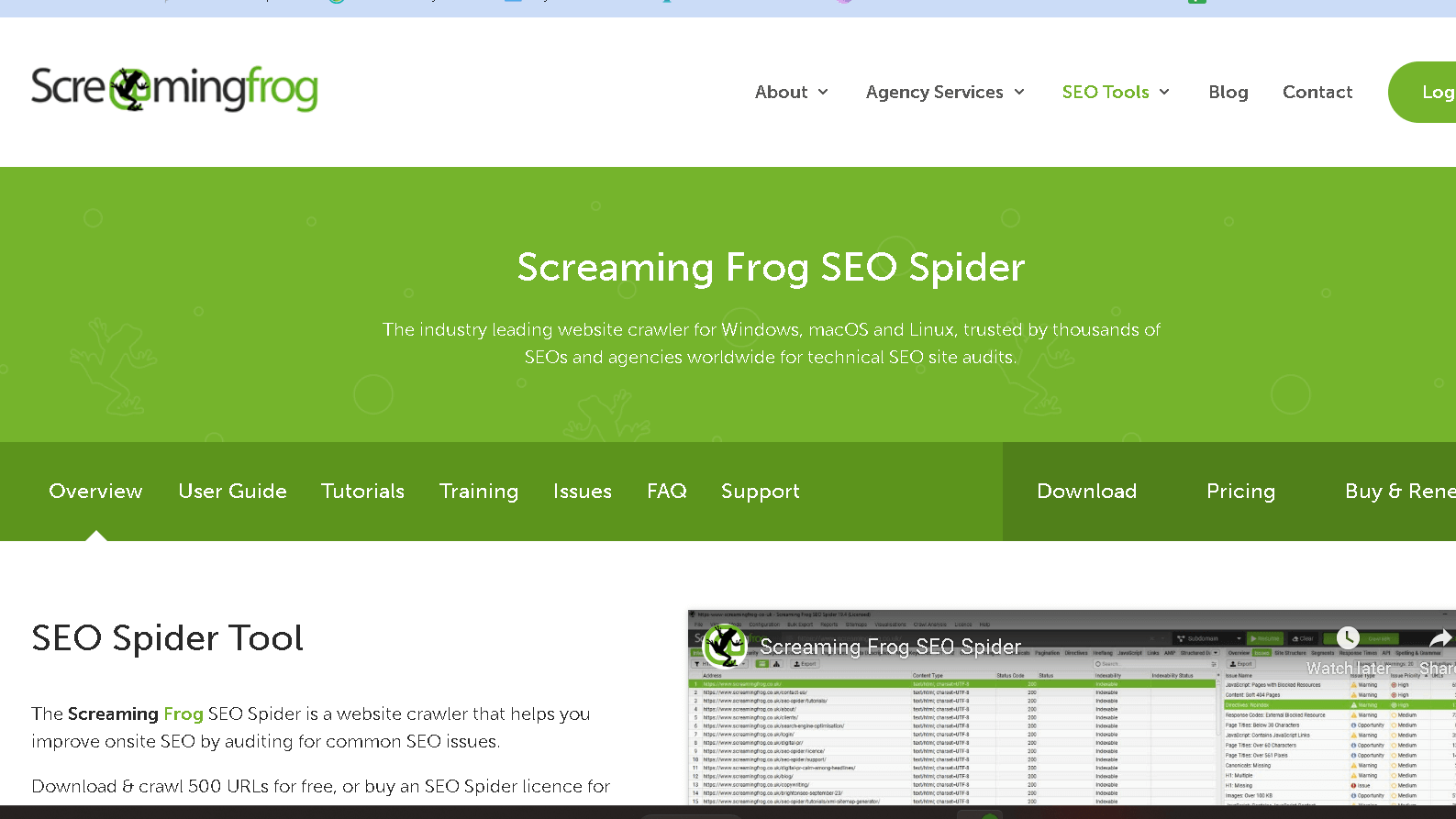
To quickly crawl websites and identify SEO problems quickly, I use Screaming Frog SEO Spider. It works on all operating systems that I use, windows, macos, linux, so I am never stuck.
Broken links, duplicate content and metadata issues – I can pick all of that up in my sleep. It’s very useful for picking up what search engines view on dynamic websites and its JavaScript rendering is a godsend for that.
It supports various user agents and it even has the googlebot one for testing. It also gives me real time crawl results and doesn’t choke on big sites.
It integrates with Google Analytics and Google Search Console as well, so that I can see how things are performing with technical information together. It is a little “clunky” on the interface side but you get the hang of it and it is very deep.
7) Serpstat
Serpstat does keyword research, site audits, rank tracking, and backlink analysis and more. This makes it convenient for anyone from solo site owners to agencies.
The dashboard is configurable; I can focus on the data that is meaningful to me. It allows for language and regional targeting, helpful for reaching different audience types.
Serpstat has AI technology which assists in faster content writing and better keyword ideas. It’s not the end all be all I use various tools on a day-to-day basis this just fits well into my work flow when I am optimizing sites or planning campaigns.
8) SEMrush Position Tracking
On a daily basis I can monitor my keyword rankings using SEMrush Position Tracking. I know exactly where on search engines my pages come up for terms I’m interested in.
It follows by location, device, and search engine – even the new ones like ChatGPT. I also use it to spy on my competition so that I can change quickly if they begin mounting a challenge for my target keywords.
Potential traffic and trends are detailed in reports. It’s easy to use; I simply plug in my keywords and receive daily updates. It is much more dependable than attempting to check rankings manually.
9) Surfer SEO
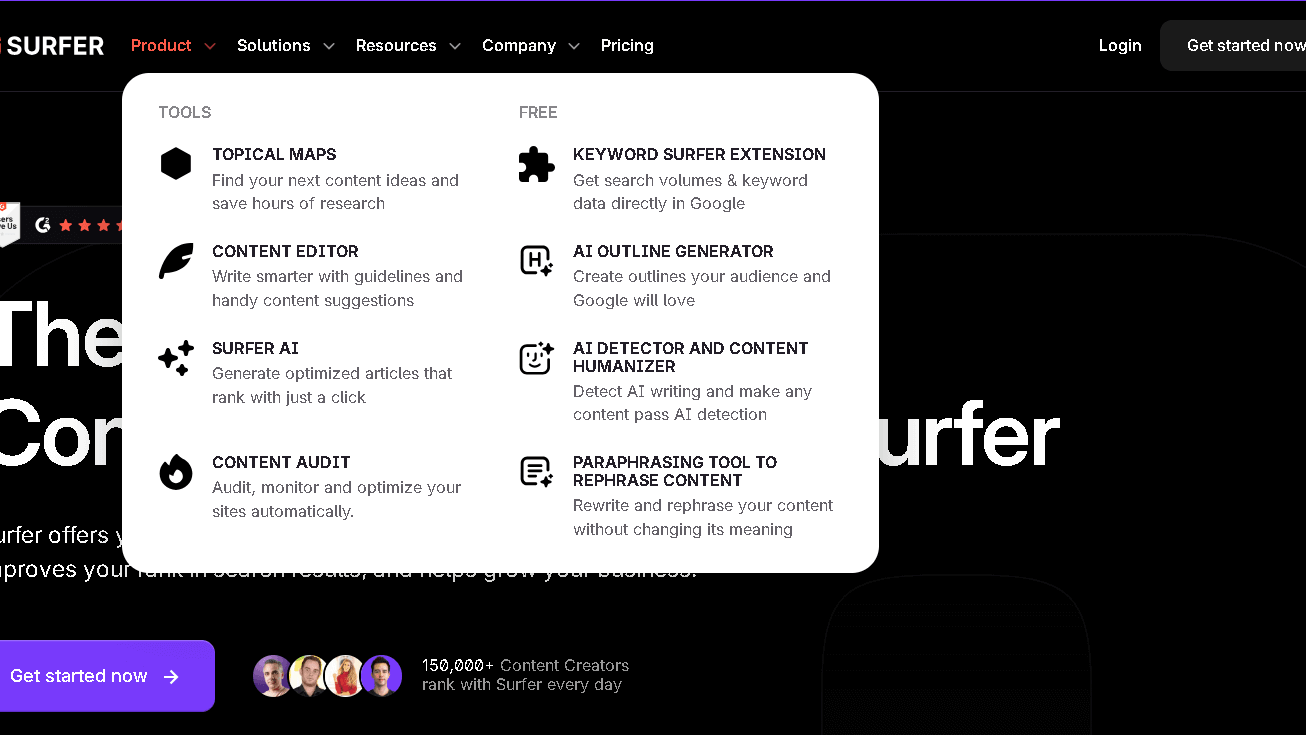
Surfer SEO is my choice for when I want to enhance my content using information drawn from top ranking pages. It tells me what my competition is doing, so I can tailor my articles to what search engines appear to favor.
The on-page optimization advice it gives is explicit, i.e. keywords, content length, structure, etc. Especially the real-time content editor has saved me a ton of time by allowing me to write and edit in once place.
It lacks some functionality present in other SEO tools, but for on-page work and content strategy it’s hard to beat. Surfer SEO in 2025 remains relevant with a great content to boost ranking.
10) BrightEdge
Unique among these is BrightEdge, which is more traditional but more suited, in this overview, to larger enterprises with more robust automation needs in the area of SEO. It leverages AI and data to enhance rankings and get more traffic.
Autopilot does much of the drudge work for you, and keyword tracking, site audits, and content suggestions help me spot gaps and optimize as needed.
Furthermore, because BrightEdge hooks into our live search data, I am able to immediately address changes and pivots in user behavior. The user-interface is simple enough that you don’t need to be a hardcore tech-nerd to find value in it.
Benefits of SEO Automation Software
SEO automation software can do things that would be ridiculously time-consuming manually. It makes optimization run more smoothly and allows you to scale as your business grows.
Time and Resource Savings
Automation tools save me a good deal of time in that they take over things like keyword research, or site audits, and rank tracking, all of which can be quite repetitive . Rather than going through and doing these manually I have the software do the work and then send me reports.
Which also means I don’t have to employ extra help or lose hours to constant updates. That free time is instead spent on strategy and on content itself.
Automation also eliminates human error, so I’m not spending time fixing things down the road. But it allows progress to be very incremental and it’s kind of a relief actually.
Consistency in Optimization
The great thing about them is that they help enforce SEO best practices. They scrape, and my site is automated, so nothing gets by me.
Automated background scheduled audits, backlink tracking and competitor analysis. I can adapt rapidly from all that goes wrong.
This also makes content updates easier. Potential SEO gains continue trending rather than plateauing, thanks to the continually accumulating keyword tracking and performance metrics.
Scalability for Growing Businesses
When my SEO efforts scale I simply cannot do everything by hand. Automation software processes more data, keywords, and larger sites with ease.
This makes it easier to add new features, or to run bigger campaigns, because the tools are already dealing with things at scale. I can increase my SEO game without having to double the work.
Key Features to Look For
To me, as I select SEO automation software, most of all I am interested in the kind of features that will save me time and reduce inaccuracies. It’s important to track keywords, to track technical factors, and to know and understand the competition.
Automated Keyword Tracking
It allows me to track how well I’m ranking on keywords, over time, no more guess work or manual checking. I receive position shift, volume, and keyword difficulty data.
Ideally they should be set up so that you know when you’re being pushed down in the rankings. They do tend to categorize by device and location, so I know who I am targeting.
Among the two things I look for are an abundance of keywords that can be used in conjunction with Google Search Console or Analytics. It keeps all my reports in one place.
Technical SEO Audits
Technical audits find problems such as broken links, slow pages or missing tags. Machines crawl my site and provide me analytical reports with distinct agendas.
I would like software that analyzes crawl errors, XML sitemaps, mobile usability, speed. The good ones will even tell you how to fix it, rather than you having to guess.
They are important to keep the site secure as well as other security checks such as HTTPS status. I just like being reassured that my site is in keeping with the most recent good practices and I don’t have to look at the details.
Competitive Analysis Tools
It allows me to also track new market trends and movement in the market away from the product. These are services that provide a database of backlinks, keywords targeted, and traffic levels.
I like the ones that also provide the ability of knowing competitors position on various terms, and thus on content strategy. Comparing side by side, and tracking trends to remain nimble.
Frequently Asked Questions
SEO automation software generally includes, but is not limited to, keyword tracking, site audits, content optimization and backlink analysis . Some are more intimately related with AI insights; others deal more with reporting or keyword research.
What features should you look for in SEO automation software?
You should look for automated keyword tracking, site audits, content analysis. Closely linked is also the need for competitive research and backlink monitoring. Good reporting and integrate with other marketing tools.
Can you recommend any free SEO software tools for beginners?
Yes, absolutely . The free versions of Semrush and Moz Pro are good for beginners.
They go over keyword research and basic site audits, which is a good beginning. Another freebie that provides you with some great data is Google Search Console.
How does SEO automation AI enhance digital marketing efforts?
AI steps in by processing large amounts of data quickly and identifying trends I might not see. It’ll spit out keyword ideas, assist with optimizing content, and handle some of the boring stuff, like rank tracking.
And that means I spend more time on strategy and not on manual work.
What are the top SEO tools available for advanced users?
If you want to go a step further, Semrush SEO Automation Tools and Ahrefs are great tools for link and keyword analysis. Content automation and optimization are things KoalaWriter does decently.
OTTO SEO by Search Atlas is unique in that it’s a “technical SEO fort the detail oriented”.
What benefits do SEO automation tools provide compared to manual SEO techniques?
I don’t think I could create a site audit, tracking keywords and reports as quickly as it is for me, it’s also time saving for those things. It also reduces errors.
And frankly I think I tend to make better decisions based on the results these types of chartmongering applications give you.
Which automated SEO report tools offer the most comprehensive analysis?
Both Semrush and Ahrefs can provide you with statistics and reports for SEO, and the reports are quite detailed, customizable. Moz Pro is also good, and particularly if you are looking to focus on local SEO.
OTTO SEO shines with their comprehensive technical SEO reports. All of these have slightly different features, so it depends on what you feel is most important.

